Composer Siddhartha Khosla on Crafting a Timeless, Emotional Score for This Is Us
On the heels of the score soundtrack release for This Is Us, we sat down with composer Siddhartha Khosla for a wide-ranging chat. Khosla shared his own emotional connection to the music, and how beat up guitars, banging on tables, and channelling his Indian-kid-from-New-Jersey’s inner Otis Redding all come together to create the heartstring-strumming sound of This Is Us.
Tunefind: Thanks for chatting with me today, Siddhartha. Let’s start a bit on your background. You’ve got this whole other life as the founding member of the band Goldspot. How does that influence your work as a composer?
Siddhartha: Yeah, my career began as singer, songwriter, and founder of Goldspot. Most of my career early on was making albums and touring and kind of living that life. I don’t do it as much anymore, but it’s been amazing because it really set up my scoring career in a big way. In the recording process, anything that I work on whether it’s This Is Us, or The Runaways, or any of the shows or films I do, I treat every project like I’m making an album in the studio. I think that’s how my band and studio work making albums has really helped me. It’s being able to channel everything I’ve learned in that process and bring it into scoring.
[Editor’s note: a few songs by Goldspot have also been featured in This Is Us.]

Evergreen Cassette
by Goldspot
from This is Us Soundtrack · Season 1 · Episode 12 · The Big Day
Final scene of episode montage; ends with Jack …
What do you love about your career as a composer?
There’s a certain joy about being able to make music for a living I think in any form, so the fact that I can be an artist and actually have a good quality of life as an artist is remarkable to me. I love performing live, but I think with a family and two young kids it’s very hard to go on tour. This career of scoring is a perfect fit for who I am now and who I think I will be in 10, 15, 20 years. So I love it. We built a recording studio at my house so all of the score that you hear is done from there and so I have a good work setup and can still see my family, which is great. This allows me to live my dream of being a musician as well as having some sort of quality family life.
Can you talk about your process for This Is Us, and the collaboration with Music Supervisor Jen Pyken and show creator Dan Fogelman? How do you all work together to create the sound of a show?
Well, creating the sound of This Is Us is something that began way before the show was ever created. I’ve known Dan Fogelman since college, when we were roommates. So there’s an understanding there that’s really the core and the foundation on which this whole relationship is built, you know? I have an idea of what he’ll like and he knows kind of what to expect from me and what I’m capable of doing. So that’s really a beautiful thing that we have with each other and helpful in the creative process.
Dan sent me the pilot script for This Is Us. He said, “I want you to read this script.” I didn’t just get the job because I knew Dan. There were other composers in the mix for this thing, so I still had to get the gig. I read the script and instantly a sound came to me, based off some conversations with Dan and the Sufjan Stevens song in the opening of the pilot [“Death With Dignity,” referenced in the script]. So I said, “Okay. They’re going Sufjan, then my instinct is to play this as an acoustic driven score, making it feel timeless.”

Death with Dignity
from This is Us Soundtrack · Season 1 · Episode 1 · Pilot
Opening; Rebecca's water breaks.
Sufjan Stevens’ music is so timeless to me. At least his acoustic stuff, not his more electronic stuff. Listen to his first record. I’d be willing to put a lot of money on the fact that no one would be able to tell you when it came out. It feels like it could come out 10-20 years in the future, or it could have come out 20 years ago. It has that timeless feel to it.
And Jen [Pyken, Music Supervisor for This Is Us, who handles all of the licensed music] and I have worked together on a bunch of other projects so we communicate very well with each other. We have a very clear vision from the beginning of what the sound of the show or movie is and we just make sure that the songs and the score feel like they’re woven from similar – if not the same – cloth. That’s probably why sometimes Tunefind gets people like, “What song is that?” and you have to be like, “No, no. It’s score.” I take that as a compliment because it means that we are doing our job and keeping the sounds somewhat seamless.
That happens all the time! This Is Us is infamous for taking viewers on an emotional rollercoaster, with uplifting and even comedic moments along with these big, tears-flowing everywhere emotional moments. How does your score help take viewers on that journey?
I think it goes back to me and Dan, too. You don’t create This Is Us out of thin air. It comes from a real place. Somebody has to have lived those joys and those sorrows and those sad moments and happy moments of life to create something like This Is Us. So this comes from a very honest place, from Dan’s heart and soul. He publicly will say that he lost his mom at a young age and so what you’re seeing and feeling in this show is based in a lot of truth.
Then the performances and the acting and the writing, they’re just tremendous. When I get picture I see it dry often times, with no music. I’m already moved by what I’m seeing on screen. It’s hard to describe because it’s very emotional, even for me when I’m scoring these episodes, too. I’m scoring for what’s happening the scene, but I’m also scoring for Dan and I think that’s part of where the emotion comes in because I give it my all, you know?
One of the things that fans love about your score is that there’s this sort of beautiful simplicity and light, ethereal tone to it, but then you hear a piece build with more and more complexity through different parts of the episode. Walk us through your approach.
Yeah. All these episodes are like mini films and I have a recurring theme that weaves in and out of the episode. You’ll hear the same refrain or the same melodic hook literally like 15 times in an episode. I have different versions of it and interpretations of it and so it feels like a mini film.
My first question [to the editors] is always, “Okay, what scene should I score first?” I ask because we know ultimately that whatever comes out of that scene musically will end up becoming the theme of that episode. So I don’t start from the beginning of the episode. I start wherever I’m going to find the theme.
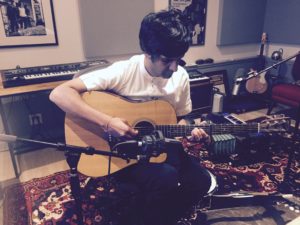
Oftentimes as that theme is playing through a long montage, we can hear you layering different instruments and sounds into the piece, building the sound. I hear guitar, piano, cello, plus some other sounds, and percussion. What else are we hearing?Is that all you in your home studio?
Yep. All the recording happens in my studio at home, except occasionally there’s a wonderful cellist that plays on the score once in awhile. She does it from her studio and sends it to me, but that’s it. Everything else is done here.
All the percussion are my hands on my wooden table that I actually work on – my actual studio desk. I stick the microphone right above my hands and then I record. Occasionally I’ll use something like a snare drum, but then again it’s me playing it. I’ll just use my hands. The fingers give you the sensitivity that’s just like my finger picking on the acoustic. It’s all fingers playing the score. And vocals. I sing on the score. Plus some beat up acoustic guitars I have.
My main acoustic guitar this season is a $25 purchase from a Vermont thrift store a couple years ago. There’s a big crack in the back of it. It’s literally on its last legs and I’m just milking it forever. I don’t use it for any other purpose other than This Is Us because I don’t want anything bad to happen to that guitar.
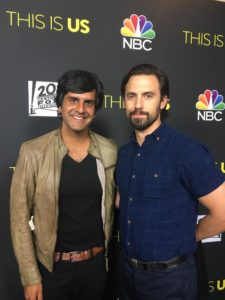
So your most prized guitar is the most beat up one you have?
Yes, it is! I love it so much. There’s something raw and visceral about the sound of that guitar. It feels beat up to me and it was Jack’s guitar this season. It helped to score his alcoholism and visits to AA, and his efforts to improve for his family – and then it just became a part of the larger sound of the show this season.
And that’s it. I have a very simple set up. Its acoustic guitars, I have my piano in my studio – it’s actually a beautiful grand piano that I use – the wooden table, my voice and celli. I use harmonium as well, which is like an Indian accordion. I use a bouzouki which is a Greek guitar, which kind of sounds like a sitar sometimes.
There’s a lot of neat influence in the score. My parents are Indian and I grew up in India for part of my life, so there’s some of that that comes into the score that kind of speaks to these seemingly unconnected people that are connected. There’s something about the large connectivity of life that I feel is seeped into the score this season. But that’s it, that’s what I use.
Let’s talk about the soundtrack that just came out. You have quite a few fairly long cues that appear in the show. How many of the soundtrack album tracks are already fairly intact from the episode, versus cues that you reworked specifically for the album?
I didn’t rework anything for the album, so everything that you hear is, for the most part, the way that I initially conceived of the pieces. What you end up hearing in the episodes, for maybe half of the songs, is some edited version of what you’re hearing on the album. The changes are minor. So either it’s shorter or a certain section looped a couple times, because it worked better to picture.
The big change [on the soundtrack] is the end title song. I initially worked that to be a longer piece of music but then we had to keep it to something like 27 seconds or so. Here on the soundtrack, it’s the way I initially envisioned it.
Fans will be excited to hear that. Often they’re disappointed to learn that a :20 cue only exists as those 20 seconds, and not a full song. And we saw chatter about those end titles on Tunefind from very early in the series. Can you tell us the background on how that end title song came about?
Well, I remember it was after the show got picked up to series. I’d done the pilot, and when you do the pilot you rarely do the titles because the last thing anyone’s focused on is what’s going to play over the final credits. My family and I went away on vacation, and I brought my guitar with me and I started just messing around and I wrote this song. In my head I was like “I feel like it belongs in the show” – it has that feeling. Then, oddly enough, when I got back from vacation, I got a phone call from Dan or somebody in production saying, “Hey, we need a closing theme. You got anything?” I was like, “I just happen to have something.” So I ended up making an instrumental version of that. It has this kind of Nick Drake-ish kind of quality I think, just acoustic guitar and the piano, and right away I remember Dan really loved it.
It’s interesting because I had this little demo that I gave to them that they all really loved and then there were some requests: “What if this was more orchestrated,” and, “What if you added more strings and other things?” So it started developing into a much larger piece. I think there are literally like 20 versions of that end credits, and ultimately we went back to the original demo, which was a much better fit. You know, there’s piano, there’s acoustic, there’s some celli… It’s the sound of the show. Had this been a big orchestral number, it would have felt out of place in the context of the score, especially now.
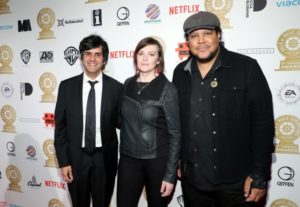
Of course, the biggest moment of season 1 had to be your original song “We Can Always Come Back to This.” Take us through that one, and the fan reaction to it.
Yeah. It was pretty crazy. That song was written for the “Memphis” episode last season. I remember Dan emailing me and saying, “Hey, we’re gonna need an original song from you.” So of course, right away I’m excited. I spoke to Glen and John, who directed that episode, and I realized how big of a role that the song was going to play in the episode. I remember feeling like, “Wow. Okay. This is going to be a big undertaking. I’ve never written a soul song in my entire life. How am I going to do this?”
It took me some time, but then I realized that so much of soul music that I’d been listening to is lyrically very conversational. So I had this moment of playing on my guitar and just talking out loud, having this conversation between William and Randall. William just says, “Hey, I’m gonna be gone soon but we can always come back. We can find each other down the road. We can find each other in another life if that’s what you believe. We can find each other on some spiritual level, some cosmic level at another point in the history of our lives.” And I was like, “Oh, we can always come back to this.” It’s just a simple line, and I was like, “Oh, that’s the song!”
So I started writing this song and I made a little mini demo and it was missing something. I called my buddy Chris Pierce, who’s a singer/songwriter, and sounds like Otis Redding when he sings. I said, “Hey, I have this song. I just need you to tell me what you think and make this feel like the real deal.” He came in and we worked on it together and it was the best thing I’ve ever done, I think.

We Can Always Come Back To This
from This is Us Soundtrack · Season 1 · Episode 16 · Memphis
[Cast performance] Ricky sings the song that Wi…
To this day I wonder how I could ever top that. It just felt like, you know, I’d spent my whole career writing songs and the song that ends up getting me the most attention after 20 years of doing this is a soul song from “Memphis?” It was a very This Is Us moment, too: Indian kid from Jersey writes a soul song for a TV show and it ends up in the Billboard Charts. Only on This Is Us does something like this happen.
Another scene that generated big reaction from fans on Tunefind was the opening of season 2, episode 1. We hear your score playing during William’s voiceover at the start of the episode. Tell us about that one.
Yep. That’s “Blip On the Radar” [on the soundtrack album]. The season 1 finale ended on Jack and Rebecca splitting up and that piece of music scored the entire ending. Then when we got into second season and our editor, Brian, who was working on that first episode, I remember he said, “We have this big monologue, and I’m trying to figure out what to temp with.” I said, “Why don’t you try looking at some of the finale score because it might be a nice way for us to connect the end of Season One to the beginning of Season Two as well. Just try and see what happens.”

Blip On the Radar (Moonshadow)
from This is Us Soundtrack · Season 1 · Episode 18 · Moonshadow
End of the episode. Rebecca leaves her date, th…
In my head I thought, “Okay I’m going to ultimately replace it with all brand new score,” and when we saw it to picture, Brian and I were like, “We don’t even want to touch this.” It looked and felt so good and it kind of reminded us also of where Jack and Rebecca were in their relationship at the time, so it felt to me like it was the right thematic thing to do.
I made some minor tweaks here and there, but it’s basically that same piece of score. Then it ends up becoming the theme of 201. You hear that piece just kind of weaving in and out of that whole episode.
So let’s talk a little bit more about “Moonshadow,” the season 1 finale, and how you first conceived of “Blip on the Radar.”
That was probably one of my favorite moments of last season. The editor sent me the final act and was like, “Just watch this and see what it makes you do.” Right away I just picked up my acoustic guitar and started playing. The monologue was kind of like the lead singer and I used that as the voice and my guitar was score. Just music around that voice.
It had to be equal parts intense – almost uncomfortably intense – but also moving and emotional, which is challenging. The writing is so good and the performances are so good and that was the perfect example of how it instantly came to me. I had written this eight minute piece initially and I was like, “Oh my lord. This is a monster.”
One area we had trouble trying to figure out was what would happen when Jack watches Rebecca performing “Moonshadow” [originally by Cat Stevens]. I think initially in the script, the episode was going to end on Rebecca singing the song. It would come in around Rebecca and move to Jack and her voice would continue until the end of the episode. Ultimately, it didn’t feel good to picture. So we had to find a way to sneak in the fact that Rebecca was singing “Moonshadow” and get out of it really quickly. All we really hear is Rebecca’s a capella singing, but I’m scoring through that whole thing, almost like “Moonshadow” feels like a whisper in the score, just the subtle hint of it. it took a couple of passes to get it right, but I think we did get it right ultimately. I hope we did. It felt good.
I want to touch on episode 208: Number One, as well. We saw a lot of chatter on Tunefind from fans who loved “Kevin’s Necklace.” Can you just take us through what you were thinking there?
Before episode eight started, I knew we were entering the trilogy: for each of the big three, we see their story in the past and in the present on the same day. I remember thinking, “Okay I need to create a Trilogy Theme. I need to have this melodic piece that connects the big three.” So that started in Kevin’s episode (208) with Kevin’s Necklace.
It’s this heartbreaking montage and monologue from Justin Hartley, who plays Kevin, where you see a flashback of Jack giving him that necklace, [which he’s lost]. Then Kevin goes to get it back and we see this flashback to the hospital after Kevin hurt his knee and his football career ended, and finally [back to present day] to Kevin going to see Randall and Randall breaking the news to him that Kate lost the baby. So it’s a very big moment in the show. You hear a piano melody in that score with three pieces. It goes da da, da da, dum. It’s like three phrases and it represents the three of them to me.

Kevin’s Necklace (Number One)
from This is Us Soundtrack · Season 2 · Episode 8 · Number One
Kevin realizes he lost Jack's necklace.
So I brought that piece in to score that episode and I remember after finishing that I was like, “This is so simple.” There was not that much in the cue. It was acoustic guitar, my piano running through some cool effects that I’ve got, and that was it. It was one of the most simple things I’ve done, but one of my favorite things that I’ve done, too. That ending becomes the basis for the next two episodes with Randall’s story and then Kate’s story. You hear that melodic hook through all three episodes.
Were there any cues that didn’t make it onto the soundtrack that you wish could have been included?
I put all my favorite cues, and any time a fan requested it, even if it was just one fan, I kind of kept note in my head. One interesting thing was that we released the soundtrack just two days before the big Super Bowl episode and I knew fans were going to be like, ‘Where’s that piece that we hear in [the Super Bowl Sunday] episode?” So I snuck it on the album. It’s called “The Kids.” I remember making sure I got approval first from everyone. They said “Yeah it’s okay if it doesn’t give away anything, and as long as you don’t highlight it so people hear the score for the first time actually in the show.” So I put it way, way down in the track order.

The Kids (Super Bowl Sunday)
from This is Us Soundtrack · Season 2 · Episode 14 · Super Bowl Sunday
The guy fixes Kate’s tape; repeats as Rebecca t…
The following episode, in 215 (The Car), I wrote this really beautiful piece of score to end the episode and a lot of people want it and I can’t give it to them yet. I don’t know when that will be available.
We’ve seen a lot of interest in that particular cue from “The Car” on Tunefind, so hopefully there’ll be another soundtrack album. We have the rest of this season and then This Is Us has already been picked up for season 3, right?
Yeah, yeah. We have next season and beyond hopefully.
You’ve also got quite a few other projects, including season 4 of the The Royals starting soon, and Marvel’s Runaways, where fans can check out more of your work.
Yeah. We recently released a score soundtrack from Marvel’s Runaways. That came out in January, and I’m really proud of that. It’s the exact opposite of This Is Us. It’s very electronic. It’s analog, it’s like 80s analog synthesizers and you know, very Depeche Mode/The Cure kind of influence stuff and totally different palate and I loved working on that show a lot.

Runaways Theme
from Marvel's Runaways Soundtrack · Season 1 · Episode 1 · Reunion
(0:03) Theme song; (0:29) Molly pushes the VW b…
Thanks, so much for chatting with me, and giving fans a peek behind the scenes.
Of course! I’m just excited that so many people care about score these days on these types of shows. It wasn’t something that was happening 10 years ago so it’s nice that the fans are listening. When people really care about it, it makes you work harder.
More
〉More music by Siddhartha Khosla on Tunefind
〉The full list of songs featured in This Is Us
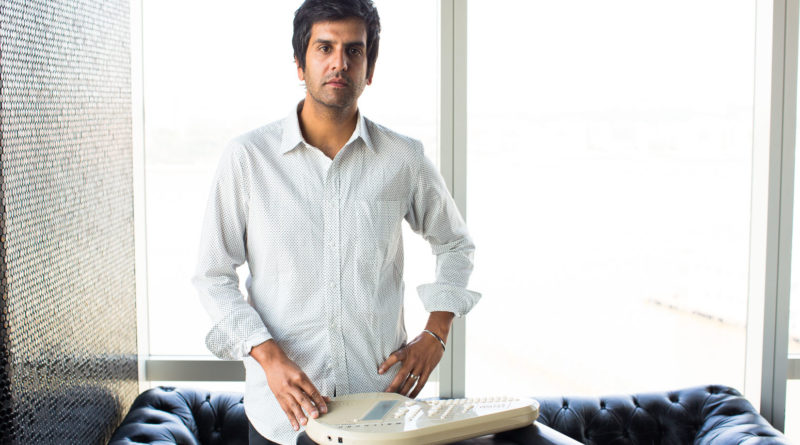


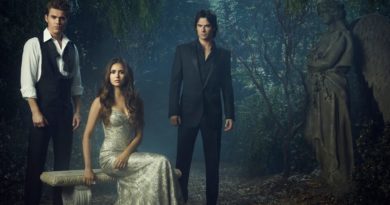
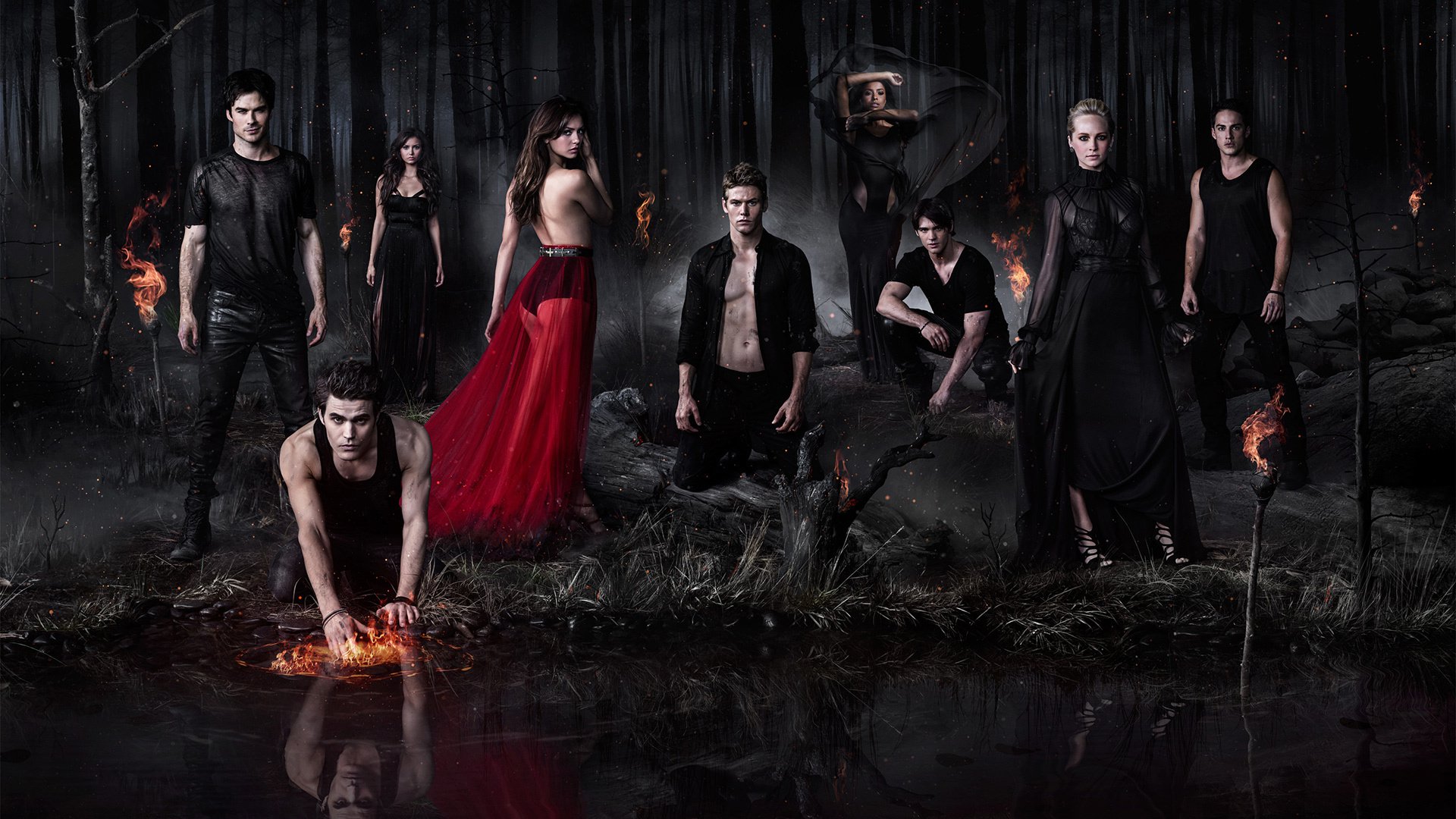
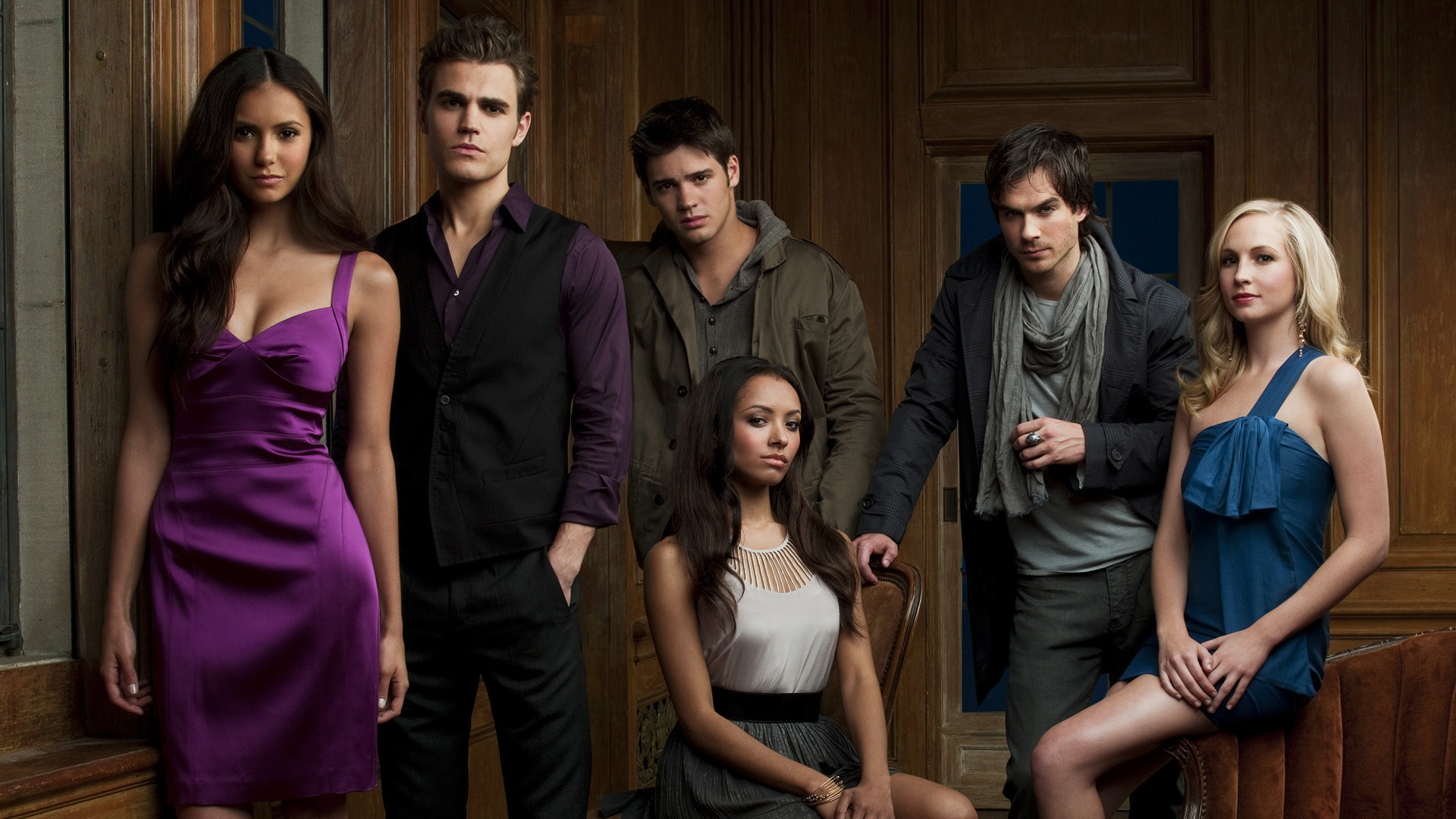
Pingback:Top TV Song Last Week: Alps by Novo Amor & Ed Tullett - Tunefind
Pingback:Tunefind's Top Blog Posts of 2018 - Tunefind
Pingback:Top Composers of 2018 - Tunefind